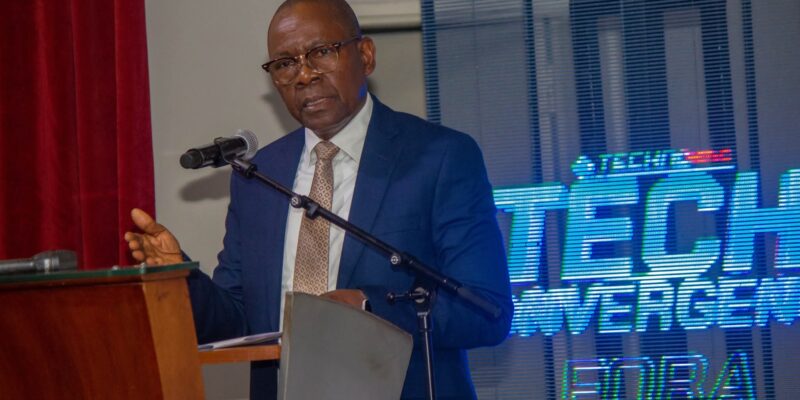At the second edition of the Tech Convergence Fora, Reserve Bank of Zimbabwe (RBZ) Deputy Governor Dr. Innocent Matshe announced the establishment of a new Department of Digital Transformation and Fintech Innovation, a strategic move designed to accelerate the country’s transition toward a fully digital economy.
Dr. Matshe said the department will drive implementation of technology-led financial solutions, strengthen innovation-friendly regulation, and ensure that Zimbabwe’s financial ecosystem keeps pace with the fast-evolving global fintech landscape. “Fintech strategy entails not only regulation, but also the acceleration of innovation-based solutions,” he stated. “This department will lead that charge.”
The Deputy Governor noted that the RBZ’s vision aligns closely with the President’s goal of building an innovative, worker-centered economy anchored on digital transformation. The new department, he explained, is part of a broader institutional shift positioning technology as the engine of economic resilience and inclusion, rather than a supporting function.
Dr. Matshe emphasized that the RBZ’s approach is to nurture innovation through supportive policy frameworks. He cited the Fintech Regulatory Sandbox as a key example, allowing innovators to test products and services under supervision before they scale to market. “The idea is to prevent the regulator from stifling innovation. The sandbox provides a learning space—for innovators to innovate and for regulators to understand before they regulate,” he said.
The department will also oversee the creation of an Innovation Hub, a collaborative platform for developers, startups, and financial institutions to co-design next-generation financial technologies. Dr. Matshe extended an open invitation to industry players to take part in shaping the hub, which he described as central to Zimbabwe’s future fintech ecosystem.
Beyond innovation, the department will play a pivotal role in implementing the National Financial Inclusion Strategy II, expanding digital financial services to underserved communities, small businesses, and startups. This, he said, will shift focus from mere access to practical usage of digital platforms that improve livelihoods and promote economic participation.
Dr. Matshe also reaffirmed the RBZ’s commitment to cybersecurity resilience and responsible digital innovation. “We are enhancing our capacity to detect and protect financial systems amid growing global cyber threats,” he noted, adding that the central bank remains aligned with the Ministry’s broader cybersecurity framework.
In his forward-looking remarks, Dr. Matshe hinted at the exploration of Central Bank Digital Currencies (CBDCs), cryptocurrency regulation, and other emerging technologies as part of the bank’s modernization roadmap. He said these innovations could redefine cross-border transactions, boost efficiency, and enable greater financial inclusion.
Concluding his address, Dr. Matshe underscored that Zimbabwe’s digital transformation is not just a technological journey—but a cultural one. “This economy needs innovative technology to drive development,” he said. “And as we build the future of finance, we must do so with energy, collaboration, and a shared commitment to progress.”














Comments